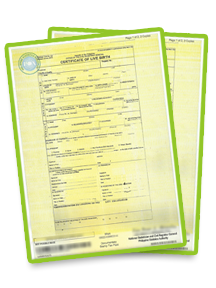
The Social Security System (SSS) death benefit is a financial lifeline for families who have lost their primary breadwinner. Designed to provide support to surviving spouses and dependent children, the benefit is a crucial safety net during difficult times. However, eligibility for this benefit is subject to specific conditions, and understanding these rules is essential for beneficiaries.
If the deceased member was unmarried or had no surviving spouse, the death benefit is given to the parents as secondary beneficiaries. In cases where both parents have passed away, the designated beneficiary in the member's SSS records will receive the pension. Alternatively, the benefit can be claimed as a lump sum, at the claimant's discretion.
It's essential to note that the SSS death benefit is a conditional entitlement. A significant factor affecting the duration of the pension is the marital status of the surviving spouse.
What is the SSS Death Benefit?
This is a cash benefit granted either as a monthly pension or a lump sum amount to the beneficiaries of a deceased member.
QUALIFYING CONDITIONS:
The type of death benefit received depends on the deceased member’s contribution history and the relationship of the claimant to the deceased.
Primary beneficiaries (spouse and dependent children) are eligible for a monthly pension if the deceased member has at least 36 months of contributions before their death.
If the deceased member’s contributions are less than 36 months, primary beneficiaries will receive a lump sum payment instead of a monthly pension.
Secondary beneficiaries (parents) and designated beneficiaries or legal heirs are entitled to a lump sum benefit regardless of the deceased member’s contribution history.

AMOUNT OF BENEFIT:
The amount of the SSS death benefit varies depending on several factors, including the beneficiary’s relationship to the deceased member and the member’s contribution history.
- Primary beneficiaries (spouse and dependent children) are entitled to a monthly death pension, including a 13th month pension paid annually in December.
- If there are no surviving spouse or dependent children, a lump sum benefit is paid to the secondary beneficiaries (dependent parents), or if none, to the designated beneficiaries or legal heirs.
- Dependent minor children receive a Dependent’s Pension equal to 10% of the member’s monthly pension or Php 250, whichever is higher. A maximum of five children, starting with the youngest, can receive this allowance.
- The minimum monthly death pension is Php 1,000 for members with less than 10 CYS, Php 1,200 for those with at least 10 CYS, and Php 2,400 for members with at least 20 CYS.
- An additional Php 1,000 benefit was implemented in January 2017.
For a full breakdown of all SSS benefits — including maternity, sickness, and retirement, visit our guide on Understanding the Different Benefits from the Social Security System.
The Impact of Remarriage on SSS Death Benefits
One of the most common questions regarding the SSS death benefit is its termination upon the surviving spouse's remarriage. The answer is definitive: yes, remarriage will result in the cancellation of the pension.
The rationale behind this policy is rooted in the nature of the benefit. The SSS death pension is designed to support dependents who have lost their primary source of income. Upon remarriage, the surviving spouse is presumed to have regained a similar level of financial support, rendering them ineligible for the pension.
Disqualification from SSS death benefits is permanent and cannot be reversed. Even if the subsequent marriage ends in separation or divorce, the surviving spouse cannot resume receiving the SSS death benefit. The policy considers the benefit a "lifetime policy," meaning once terminated, it cannot be reinstated under any circumstances.
Alternative Support for Children
While the surviving spouse may lose their entitlement upon remarriage, dependent minor children can continue to receive the Dependent’s Allowance until they reach legal age.
For more information or assistance with SSS death benefit claims, beneficiaries can browse the website of SSS online, or contact the SSS hotline at 1455 (for Metro Manila callers) or 1-800-10-2255777 (toll-free for outside Metro Manila). Alternatively, inquiries can be sent via email to member_relations@sss.gov.ph.
Did you know that you can order your PSA certificates online and have these delivered to you? Just visit www.PSAHelpline.ph, an online channel recognized by the Philippine Statistics Authority (PSA) to handle online ordering and delivery of PSA certificates nationwide.



